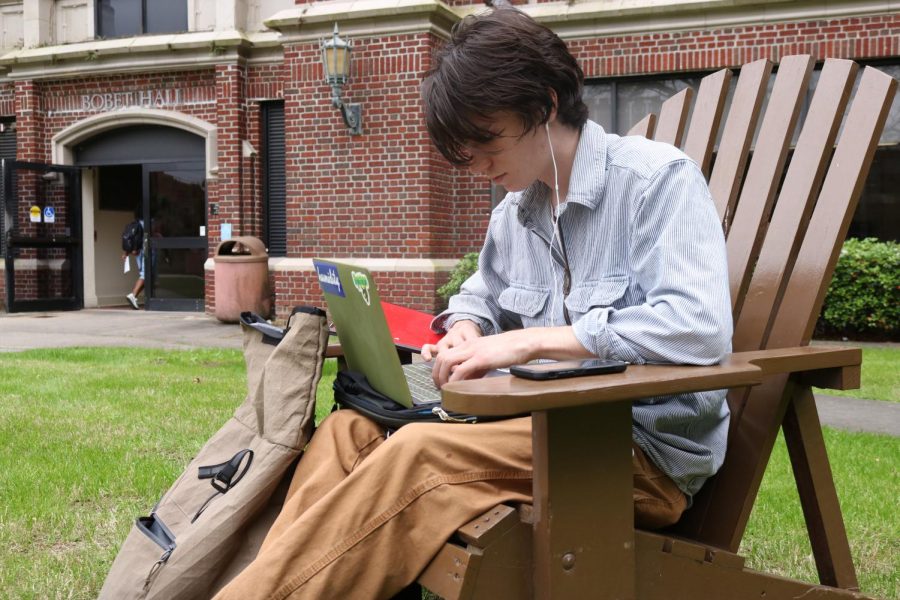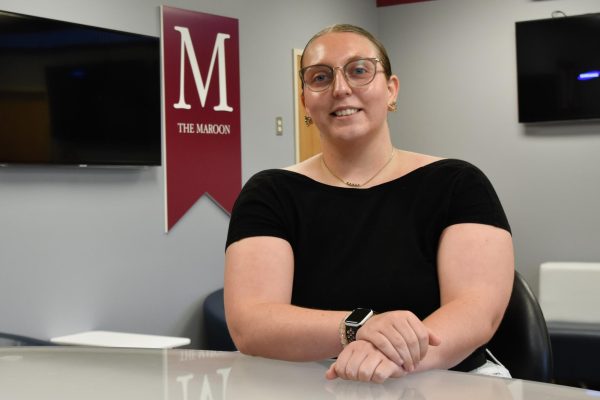Students miss out on “college experience”
English Sophomore Noah Rozzell sits outside Bobet hall.
February 18, 2023
A recent report from Loyola’s University Faculty Senate noted that “many full-time students are working 30+ hours a week” and many of the students at Loyola were, on average, 15 years old when COVID-19 hit, missing out on “crucial years of in-person learning.”
Kele Johnson, a senior marketing major at Loyola, juggles 21 credit hours while working three jobs and being a member of the Loyola dance team. She said she barely stays on campus longer than she has to and finds it hard to keep up with her workload. Johnson also said she sometimes finds herself doing her schoolwork for other classes during her lectures.
“It sometimes feels like I have to be in more than one place at once, and I can’t be,” Johnson said.
Johnson is not the only student who feels stretched too thin. Cristina Dabroski, a freshman economics major, said COVID-19 hit when she was a high school sophomore, forcing her and her peers to move to online learning. The transition from zoom classes in high school to in-person learning at Loyola wasn’t the easiest thing to do, Dabroski said.
Dabroski said she has found it harder to pay attention in class because she has to keep her focus the whole time, unlike when she was on Zoom, where she could clock out at any time.
“During Zoom, when you wanted to clock out, you could just sit back and do something else. As opposed to now you have to go to class [and] you have to look somewhat alive during your classes,” Dabroski said.
Patricia Murret, the associate director of public affairs, said Loyola is a tight-knit community and is working hard to find out what students need. She said many students at Loyola missed out on crucial face-to-face experiences due to COVID-19, and they are working hard to help students transition back from online learning to in-person learning.
Loyola culture is created on the idea of education being used to develop the whole person: mind, body, and spirit, and Murret said they are looking for new ways to help support students like Dabroski and Johnson to succeed in their academic careers.
“We encourage all students to develop close relationships with faculty and to seek help when needed from their faculty, advisors, and the Student Success Center,” Murret said.
Despite the setbacks this year’s freshman faced, Elizabeth Rainey, the executive director of the Pan-American Life Student Success Center and peers, said it’s not all bad.
Rainey taught a first-year seminar course last semester and said her first-year students were able to be more creative with their powerpoints. She also saw that her first-year students helped find support for each other.
“I thought students were more willing to support each other by sharing resources like counseling and academic accommodations. I think the pandemic opened up conversations about self-care and accessing resources,” Rainey said.








